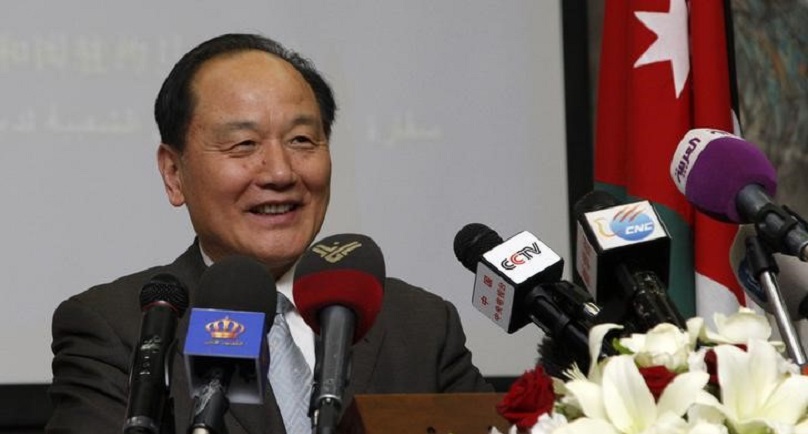Image: Wu Sike, China’s Middle East Envoy, talks during his news conference at the Chinese Embassy in Amman May 29, 2013. REUTERS/Mjed Jaber
BEIJING (Reuters) – The West is to blame for the refugee crisis confronting Europe after it interfered in the affairs of Middle Eastern countries to try and push its own values, such as democracy, but only caused chaos, a former senior Chinese diplomat has said.
A bitterly divided European Union is battling to cope with hundreds of thousands of people fleeing war and poverty in the Middle East, Asia and Africa. Its biggest economy, Germany, expects between 800,000 and a million asylum seekers to arrive this year, far more than any other nation in the bloc.
China has repeatedly urged a negotiated solution in Syria, source of many of the refugees, and has warned that armed intervention will only worsen matters.
Writing in the latest edition of the bimonthly Communist Party magazine Qiushi, Wu Sike, China’s former special envoy to the Middle East, said the revolutions that convulsed the Arab world from late 2010 had been “used” by Western countries to push their own agenda.
“Mechanically copying the ‘colour revolution’ of the Western path to development and political system, not only will not lead to the democracy and livelihood improvements people expect, but will cause a vicious circle of violence and bloodshed,” wrote Wu, who is now an adviser to China’s foreign ministry.
The term “colour revolution” refers to popular uprisings experienced by former Soviet states, such as Ukraine, that often swept away long-established rulers.
Europe is paying the price for its support of such movements in the Middle East, Wu wrote in the influential party journal, whose name means “seeking truth”.
“The interfering policies of the United States, Europe and other Western nations and their trying to push their own values to change the Middle East have bought long-term turmoil and have been an important inducement to this wave of refugees,” he said.
Chinese officials frequently mention the “colour revolutions”, and the problems perceived to have resulted, as a warning to their own populace of the trouble that might result from overthrowing long-standing governments.
China’s ruling Communist Party brooks little dissent, and has ruled without interruption since a revolution bought it to power in 1949.
China is a low-key diplomatic player in the Middle East despite its dependence on the region for its oil, though it has been trying to play a more active role, including appointing its own special envoys to the region.
(Reporting by Ben Blanchard; Editing by Clarence Fernandez)
Copyright 2015 Thomson Reuters. Click for Restrictions.


